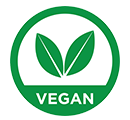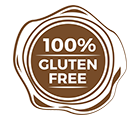Quercetin is a naturally occurring flavonoid found in various fruits, vegetables, and other plant-based foods. It is particularly known for its antioxidant, antimicrobial, and anti-inflammatory properties. These qualities have made it a popular ingredient in both nutraceutical and cosmeceutical products, with research highlighting its wide-ranging health benefits. This post explores the potential of this powerful flavonoid for human health and its use in food products.
What is Quercetin?
This compound belongs to the flavonol subclass of flavonoids, a large group of polyphenolic compounds produced by plants. It is commonly found in foods such as apples, onions, kale, berries, and tea. In addition to providing color and flavor to plants, flavonoids like quercetin offer protective health benefits when consumed. Due to its antioxidant nature, it plays a significant role in neutralizing free radicals, which are responsible for oxidative damage in cells.
Health Benefits of Quercetin
1. Antioxidant Properties
Quercetin’s antioxidant effects are primarily due to its ability to neutralize free radicals and chelate metal ions. This reduces oxidative stress in the body, protecting cells from damage and helping to prevent chronic conditions such as cardiovascular disease and cancer. The compound’s antioxidant action is also enhanced by its ability to activate the Nrf2 transcription factor, which promotes the expression of various antioxidant enzymes.
2. Antimicrobial and Antiviral Effects
Research shows that quercetin has antibacterial, antifungal, and antiviral activities. It works by disrupting the cell membranes of bacteria, inhibiting enzyme synthesis, and reducing biofilm formation. This compound is also effective against a range of viruses, including influenza and hepatitis C, by interfering with their replication processes.
3. Anti-inflammatory Benefits
This flavonoid is known to inhibit pathways associated with inflammation, including the NF-κB and MAPK pathways, which are involved in the production of inflammatory cytokines. This makes it a potential therapeutic option for inflammatory conditions such as rheumatoid arthritis and allergies.
4. Anticancer Properties
Studies suggest that quercetin may help prevent cancer by inducing apoptosis (programmed cell death) in cancer cells. It also inhibits angiogenesis, the process by which tumors form new blood vessels, thus starving the cancer cells. The ability to modulate gene expression also plays a role in preventing cancer cell proliferation.
Applications of Quercetin in Food
In addition to its health benefits, quercetin is increasingly used as a natural food preservative due to its antimicrobial and antioxidant properties. It helps extend the shelf life of food products by reducing microbial growth and preventing the oxidation of fats, making it a valuable natural alternative to synthetic preservatives.
Conclusion
Quercetin is a potent flavonoid with a variety of therapeutic effects, from antioxidant and anti-inflammatory actions to antimicrobial and anticancer properties. Its presence in a range of common foods makes it an easy and accessible way to boost overall health. However, further research is needed to optimize its bioavailability and maximize its health benefits.





